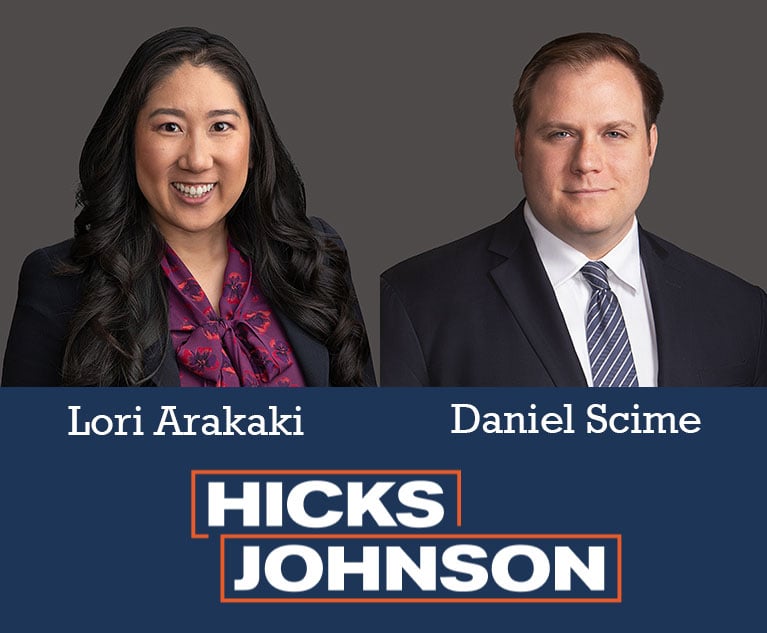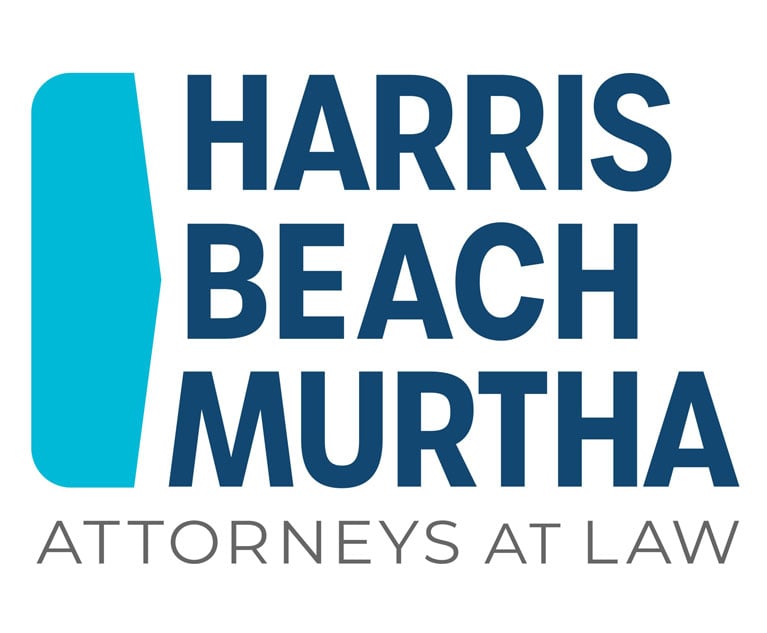Supreme Court's 'Conference Handshake,' a 19th Century Tradition, Takes a Pause
A U.S. Supreme Court spokesperson said Friday the justices are feeling healthy and embracing measures to minimize personal interaction.
March 20, 2020 at 03:13 PM
4 minute read
The original version of this story was published on National Law Journal
 Justices of the U.S. Supreme Court pose during their formal group photograph in the East Conference Room of the Supreme Court in Washington, D.C., on Nov, 30, 2018. Photo: Andrew Harrer/Bloomberg
Justices of the U.S. Supreme Court pose during their formal group photograph in the East Conference Room of the Supreme Court in Washington, D.C., on Nov, 30, 2018. Photo: Andrew Harrer/Bloomberg
The U.S. Supreme Court's private conference, where the justices meet to discuss pending cases, occurred Friday in a new world, where personal interaction—"judicial" handshakes included—is avoided.
The justices met Friday—some remotely, by telephone—for their private conference in which they comb through petitions and other matters. But this time, the justices had decided to suspend, temporarily, their traditional handshakes with each other.
A court spokesperson said the justices are feeling healthy and embracing measures to minimize personal interaction.
March's argument session, including the dispute over President Donald Trump's financial records, has been postponed indefinitely. Still, the court is expected to continue to release orders in pending cases and opinions. New rulings in argued cases could come early next week.
Federal and state authorities have advised against handshakes, as one measure to help stop the spread of the novel coronavirus. More than 15,000 people in the United States have contracted the virus. As a New York Times headline put it recently: "The Handshake Is on Hold."
The "Judicial Handshake" at the Supreme Court has been a tradition since the days of Chief Justice Melville W. Fuller in the late 19th century, according to the court. When the justices assemble to go on the bench each day and at the beginning of the private conferences, each justice shakes hands with each of the other eight. Fuller instituted the practice as a reminder that differences of opinion on the court did not preclude overall harmony of purpose.
The justices' handshakes also became a popular math problem for school students: How many handshakes will result if nine Supreme Court justices each shake hands with each other?
"36 of them to be exact," Justice Ruth Bader Ginsburg once remarked.
"As we enter the robing room or the adjacent conference room, we shake hands, each justice with every other," Ginsburg said in 2009. "Every day the court hears arguments, and every day we meet to discuss cases, we lunch together in the justices' dining room. The room is elegant, but the lunch is not haute cuisine. It comes from the court's public cafeteria, the same fare available to anyone who visits the court."
And then there was Justice Sandra day O'Connor's "secret" handshake following her first conference meeting. As Evan Thomas, author of "First", recounts: "On her first day, O'Connor grasped the meat-hook hand of Justice Byron 'Whizzer' White, who had led the National Football League in rushing for the Detroit Lions. 'It was like I had put my hand in a vise,' recalled O'Connor. 'He just kept the pressure on and tears squirted from my eyes.' After that, O'Connor made sure to shake White's thumb."
The handshake has long been a routine part of the proceedings in the U.S. Court of Appeals for the Fourth Circuit, where the judges, after argument, leave the bench and greet the advocates who'd just made their cases. "The Fourth Circuit is one that values still its traditions, its civility, its continuity, and its commitment to equal justice under law," the court says.
The Richmond, Virginia-based appeals court recently postponed a week's worth of arguments amid the widening pandemic.
Other trial and appellate courts are adjusting to a new normal, as scheduled proceedings are heard by telephone instead of in person. The D.C. Circuit's first go-around with telephonic arguments Friday was a "mess."
Read more:
New Normal Sets In for White-Collar Lawyers in the Virus Era
'It's Kind of a Mess': Phone Arguments Get Rocky Debut at DC Circuit Amid Pandemic
'Be Kind' During the Pandemic, and That's a Court Order
For Supreme Court Advocates, Virus-Era Delays Pose 'Stay Fresh' Challenge
NOT FOR REPRINT
© 2025 ALM Global, LLC, All Rights Reserved. Request academic re-use from www.copyright.com. All other uses, submit a request to [email protected]. For more information visit Asset & Logo Licensing.
You Might Like
View All

Hicks Johnson Promotes Lori Arakaki and Daniel Scime to Firm Partnership
2 minute read
IAG Forensics & Valuation is excited to announce promotions at our firm effective 1/1/2025.
1 minute read
Trending Stories
- 1Reviewing Judge Merchan's Unconditional Discharge
- 2With New Civil Jury Selection Rule, Litigants Should Carefully Weigh Waiver Risks
- 3Young Lawyers Become Old(er) Lawyers
- 4Caught In the In Between: A Legal Roadmap for the Sandwich Generation
- 5Top 10 Developments, Lessons, and Reminders of 2024
Who Got The Work
J. Brugh Lower of Gibbons has entered an appearance for industrial equipment supplier Devco Corporation in a pending trademark infringement lawsuit. The suit, accusing the defendant of selling knock-off Graco products, was filed Dec. 18 in New Jersey District Court by Rivkin Radler on behalf of Graco Inc. and Graco Minnesota. The case, assigned to U.S. District Judge Zahid N. Quraishi, is 3:24-cv-11294, Graco Inc. et al v. Devco Corporation.
Who Got The Work
Rebecca Maller-Stein and Kent A. Yalowitz of Arnold & Porter Kaye Scholer have entered their appearances for Hanaco Venture Capital and its executives, Lior Prosor and David Frankel, in a pending securities lawsuit. The action, filed on Dec. 24 in New York Southern District Court by Zell, Aron & Co. on behalf of Goldeneye Advisors, accuses the defendants of negligently and fraudulently managing the plaintiff's $1 million investment. The case, assigned to U.S. District Judge Vernon S. Broderick, is 1:24-cv-09918, Goldeneye Advisors, LLC v. Hanaco Venture Capital, Ltd. et al.
Who Got The Work
Attorneys from A&O Shearman has stepped in as defense counsel for Toronto-Dominion Bank and other defendants in a pending securities class action. The suit, filed Dec. 11 in New York Southern District Court by Bleichmar Fonti & Auld, accuses the defendants of concealing the bank's 'pervasive' deficiencies in regards to its compliance with the Bank Secrecy Act and the quality of its anti-money laundering controls. The case, assigned to U.S. District Judge Arun Subramanian, is 1:24-cv-09445, Gonzalez v. The Toronto-Dominion Bank et al.
Who Got The Work
Crown Castle International, a Pennsylvania company providing shared communications infrastructure, has turned to Luke D. Wolf of Gordon Rees Scully Mansukhani to fend off a pending breach-of-contract lawsuit. The court action, filed Nov. 25 in Michigan Eastern District Court by Hooper Hathaway PC on behalf of The Town Residences LLC, accuses Crown Castle of failing to transfer approximately $30,000 in utility payments from T-Mobile in breach of a roof-top lease and assignment agreement. The case, assigned to U.S. District Judge Susan K. Declercq, is 2:24-cv-13131, The Town Residences LLC v. T-Mobile US, Inc. et al.
Who Got The Work
Wilfred P. Coronato and Daniel M. Schwartz of McCarter & English have stepped in as defense counsel to Electrolux Home Products Inc. in a pending product liability lawsuit. The court action, filed Nov. 26 in New York Eastern District Court by Poulos Lopiccolo PC and Nagel Rice LLP on behalf of David Stern, alleges that the defendant's refrigerators’ drawers and shelving repeatedly break and fall apart within months after purchase. The case, assigned to U.S. District Judge Joan M. Azrack, is 2:24-cv-08204, Stern v. Electrolux Home Products, Inc.
Featured Firms
Law Offices of Gary Martin Hays & Associates, P.C.
(470) 294-1674
Law Offices of Mark E. Salomone
(857) 444-6468
Smith & Hassler
(713) 739-1250








